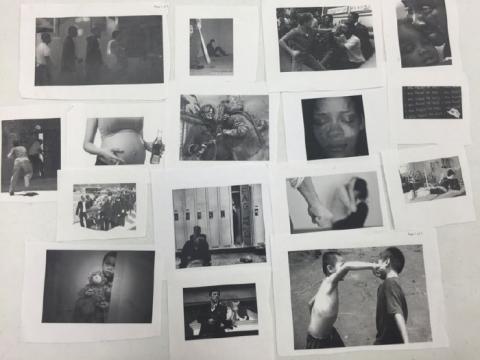When Students are Traumatized, Teachers are Too
Access this article by Emelina Minero on the Edutopia website at: https://www.edutopia.org/article/when-students-are-traumatized-teachers-…

Access this article by Emelina Minero on the Edutopia website at: https://www.edutopia.org/article/when-students-are-traumatized-teachers-…
Learning can be a real struggle for children who have experienced a trauma. But once trauma is identified as the root of the behavior, educators can adapt their approach to help students cope when they are at school. These steps create a blueprint for trauma informed school implementation and success. While creating a trauma informed…

Adapting SITCAP-ART: The Story of One Program’s Journey in Group Implementation for Transformative Results This paper explores the adaptation of SITCAP-ART to fit needs and aptitudes of at risk adjudicated youth in a particular intensive after care program. After describing the program, population served, and problems with prior groups, it explores the process this therapist…

Self-care in relationship to trauma work is an essential practice for professionals in this helping field. Without attention and connection to our own self-care, the demanding toll of aiding and supporting others in pain and distress can often leave us vulnerable to compassion fatigue, vicarious trauma and burnout. In relationship to this necessity for provider…

Since 1990, the National Institute for Trauma and Loss in Children (TLC) has pioneered strength-based, resilience-focused interventions with young people. As a core piece of these interventions, the helping adult becomes a witness seeking to understand the deeply painful experiences of traumatized children. How traumatized youth interpret themselves, their interactions with others, and their environment…
School Memorials: Should We? How Should We? Several students die in an “active shooter” situation or as the result of a major car accident. The school erects a permanent memorial for these students. Months later, another student dies. Should this student be included in the permanent memorial or should another memorial be created? Within the…
A study exploring the impact of early parental death has revealed the long-term damage and suffering that can be experienced by individuals in adult life if appropriate levels of support are not provided at the time of bereavement. The new research, published in the Journal of the Royal Society of Medicine, describes the low self-esteem,…
Trauma needs containment and recognition in order to be handled, and this project enabled the soldier to do both through the use of writing and poetry. This paper is based on the qualitative findings of an 18-month long poetry therapy group conducted in a veteran’s center, and follows the progress of the veterans as they…
http://parentszone.org/category/military-resource/ Sometimes the act of asking for help can be more difficult than just doing the task yourself. Military families are not strangers to adjusting family roles and taking on extra responsibilities, especially during times of deployment. Asking for help and allowing yourself to receive help can be two of the most challenging aspects of…
Do educators and schools have an informed role to play in the lives of students struggling with unprocessed traumatic memories other than providing cognitive learning experiences? Although schools are not mental health facilities and teachers are not therapists, teaching today’s students requires alternative strategies and skills compared to what worked a generation ago. Download article…
This randomized controlled study assessed the efficacy of a structured group therapy for traumatized, adjudicated adolescents in residential treatment. Youth were randomly assigned to a trauma intervention (SITCAP-ART) or to a waitlist/comparison group. The intervention included both sensory and cognitive/behavioral components. Standardized trauma and mental health measures were used. Study participants demonstrated statistically significant reductions…
REEXPERIENCING Intrusive thoughts, feelings Traumatic dreams Flashbacks Intense psychological distress triggered by reminders Physiological reactivity PERSISTENT AVOIDANCE Of thoughts, feelings, talking of activities, places, people associated with trauma Inability to recall Numbing, detachment, estrangement Restricted affect Foreshortened future INCREASED AROUSAL Sleep difficulty Irritability, assaultive behavior Difficulty concentrating Difficulty remembering Hypervigilance Startle response PTSD is diagnosed…